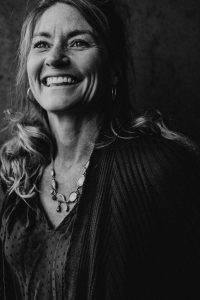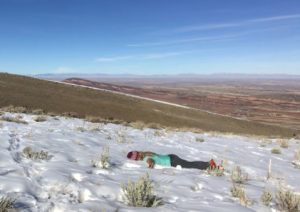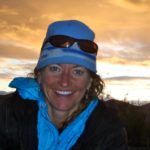Navigating the Wilds of Midlife
November 13th, 2019
Note: This particular blog post is written for women. However, if you’re a man and you’re reading this, you may learn something that’s helpful with respect to women who are in the middle of their life.
“Above all, be the heroine of your life, not the victim.” –Nora Ephron
“The body is not a thing, it is a situation.” —Simone de Beauvoir
Hi. My name is Shelli. I’m 51 years old and I’m going through perimenopause. 🤪💃🏿
By definition, perimenopause means “around menopause” and refers to the time during which a woman’s body makes its natural transition to menopause, marking the end of the reproductive years. Technically speaking, this is a time when a woman’s level of estrogen–the main female hormone–rises and falls unevenly. A woman’s menstrual cycle may lengthen or shorten, and she may begin having menstrual cycles in which her ovaries don’t release an egg (ovulate).
Can I just call it what it is? This is a time when all hell breaks loose for a woman. (Note: Not all women struggle in perimenopause/midlife. There are some who sail through this stage without incident. I just don’t know any of them.)
But before we get to the hell-breaking-loose part, let me say for the record that the middle of life is an extremely meaningful and beautiful stage of life. This is a time of harvest and reaping the benefits of years of striving, raising children (or not), overcoming challenges, making memories, and more. It’s a time for reflecting, to be grateful for the blessings in our life while looking forward with hope and anticipation. Personally, and honestly, this is the best time of my life.
And, it’s a hard and disorienting time.
For example, the other night my husband, Jerry, brought home flowers for me. Upon discovering them, I kissed the flowers and then smelled my husband while saying Thank You. (And by the way, I didn’t deserve the flowers, but that’s another story. For now, suffice it to say that my husband is thoughtful, but also probably concerned. After all, these days I often enter a room and can’t remember why. I am more easily overwhelmed. I sometimes think I’m losing my mind, and I’m often not recognizable to myself, let alone to those who love me.)
I’ve been soliciting and compiling a list of unusual or “crazy” things women have done or experienced as a result of the physiological and psychological changes in midlife. (If you’re a woman, please consider sharing anecdotes and stories with me. I promise to not disclose your identity.) The first woman who shared about her experience with perimenopause did so a couple of years ago when I ran into her at a community event. This is a woman that I have always considered to be a rockstar–a superwoman who is extremely accomplished, involved in her community, and who isn’t easily fazed. I hadn’t seen or talked to her in over a year. She explained that perimenopause had turned her life upside down. She explained that for over a year she was for the most part “emotionally disabled,” and shared with me intimate details about how particular parts of her body were breaking down in all kinds of unexpected and painful ways. I have been scared ever since.
A woman I used to coach who is also in this stage of life, shared with me that one day she walked to the gas station to fill her car up. Yes, you read that correctly.
Another woman told me she has been waking up almost every night with what feels like panic attacks. Once awake, she feels an impending doom and cannot get through it without getting up and going outside, even if it’s dark and even if it’s raining or snowing out. She explained that she could not bear the thought of even one more night like that, so she went to the doctor to get a prescription for anti-anxiety meds, which she hopes will prevent future panic attacks and feelings of doom.
I belong to a few online communities that cater to women who are over 40 and it’s common to read of women suffering existential crises. Another woman wrote to me that after she spent an evening reading in bed like she typically does (“with the perfect eyesight I’ve always had”) she woke up and it was the end of her perfect eyesight. Just like that. Literally overnight. While checking emails on her phone at breakfast, the words were so blurry she had to strain hard with her eyes just to try to read it. Her great vision never returned and she now wears progressive lenses. Are eyesight problems due to perimenopause? I don’t know, but at this point, I’d say, of course! 🙂
Several women have shared with me how they wake up in the early morning hours to discover themselves stripped naked, and their bedsheets totally drenched all the way through the mattress pad. At the same time, they feel mentally scattered and confused.
Educator and author Darcey Steinke, in her latest book, Flash Count Diary: Menopause and the Vindication of Natural Life, describes one of her hot flashes: “I throw off my covers and feel, in the first pocket of spooky quiet, that flames are burning from my inner organs up into my muscles toward the skin. I’d run away but how does one flee one’s own body? Each hair is a thin electric coil heating up my head.”
Like I was saying, the struggle is real.
Jenny Offill, author of Dept. of Speculation, praises Steinke’s book: calling it “a profound white-knuckle ride through unnamed territories.”
I love Offill’s description because as I find myself experiencing symptoms of perimenopause, I do indeed feel like I’m in an unnamed territory. It is as if I’m standing with a great expanse of uncharted land before me, for which I do not have a map. And by all early indications, the terrain will at times be severe and dramatic.
Add to that, I’ve learned that the physiological and psychological symptoms that come with this stage of a woman’s life, can last 4-12 years. In other words, this won’t be a quick adventure, and I’m going to need some help.
Fortunately, help is available in many forms. First, there are forms of support that address physiological and psychological symptoms. There is hormone replacement. There are antidepressants and anxiety meds. There is therapy. Meditation. Exercise. Time spent outdoors. Yoga. Acupuncture. Massages. There are numerous recommended supplements that reportedly help relieve midlife ailments, including Magnesium L-Threonate, Vitamin D, Vitamin B12, melatonin, and others. There are herbs like Black Cohosh, Vitex Berry, and other natural solutions–where legal–such as cannabis (CBD and THC). And the list goes on and on.
While I’m still creating a personal map to help me navigate the terrain of midlife, I have found some “guidebooks.” Books I’ve turned to for knowledge–and often, humor–include: Why We Can’t Sleep: Women’s New Midlife Crisis, by Ada Calhoun, I Feel Bad About My Neck, by Nora Ephron, I See You Made An Effort, by Annabelle Gurwitch, Love and Trouble: A Midlife Reckoning, by Claire Dederer, What Would Virginia Woolf Do?, by Nina Lorez Collins (who started a closed Facebook group with the same name that grew to 31,000 members that has now moved away from Facebook into its very own app), Flash Count Diary: Menopause and the Vindication of Natural Life, by Darcey Steinke, The Hormone Cure, by Sara Gottfried, The Wisdom of Menopause, by Christiane Northrup, and several others that my forgetful brain isn’t able to recall at the moment.
Our experience in this wilderness that is midlife can feel lonely.
This is a good time to mention that we are in a Loneliness Epidemic in the United States. Some 50% of Americans report feeling lonely. This is compared to just 20% in the 1980s. During a time when we’ve never been more connected, we are increasingly lonely. Loneliness doesn’t only bring emotional suffering that results in increased rates of depression, anxiety, and rates of suicide, but also results in real health ramifications. One Cigna study reported that experiencing loneliness is the equivalent of smoking 15 cigarettes a day. People who regularly experience loneliness are more likely to get sick and to live shorter lives.
I’ve been doing research and writing on belonging and loneliness and will be publishing a separate blog post about that soon. But I mention loneliness here because it’s relevant. If you’re a midlife woman, experiencing even just some of the many symptoms of perimenopause, it’s likely you’ll sometimes experience loneliness. I know I have experienced loneliness, despite the fact I have a number of friends and good people in my life.
But I offer some encouragement: We’re not alone. At least we don’t have to be.
The most helpful “medicine”/cure I’ve found so far for the challenges of perimenopause and all things midlife–of all of the solutions I’ve purchased or tried–has been connecting with other women. I have found support and guidance from the women in my life, including my mother, my sisters and my friends, and all of the women I have coached or worked with who are experiencing midlife or who have gone before me and made it to the other side of The Change. I find tremendous comfort in the meaningful conversations and intimate sharing of knowledge and experiences that result when women in midlife are together.
So I would like to facilitate more of that.
In an effort to do this, I’m launching a new program called “Epic Midlife Women.” I’ve designed the program that I want to attend. If you’re a woman in your 40s or 50s, dealing with any of the things I’ve mentioned in this blog post, then I’m looking for you.
I hope you’ll consider joining me on the journey through the wilderness of midlife.
The Epic Midlife Women program will include many of the components I incorporate in my coaching, presentation, and other Epic programs, but will follow a new format. While we’ll have some time offsite in a beautiful outdoor location, this program will be more of an event and gathering. In addition to programming that will be related to all things midlife, there will be a lot of facilitated, as well as organic, conversation, connection, and sharing.
Here’s a personal video message I made:
If you’re interested in learning more about the program, please email me. The program is being offered on a first-come, first-served basis.
Thank you for reading. I appreciate your time and support.
- Categories: Adventure, Family, Fitness, Life and Leadership, Travel
- Tags: anxiety, depression, epic midlife women, hormone replacement, hot flashes, menopause, midlife women, perimenopause, the change, woman
- Comments: 2 Comments








